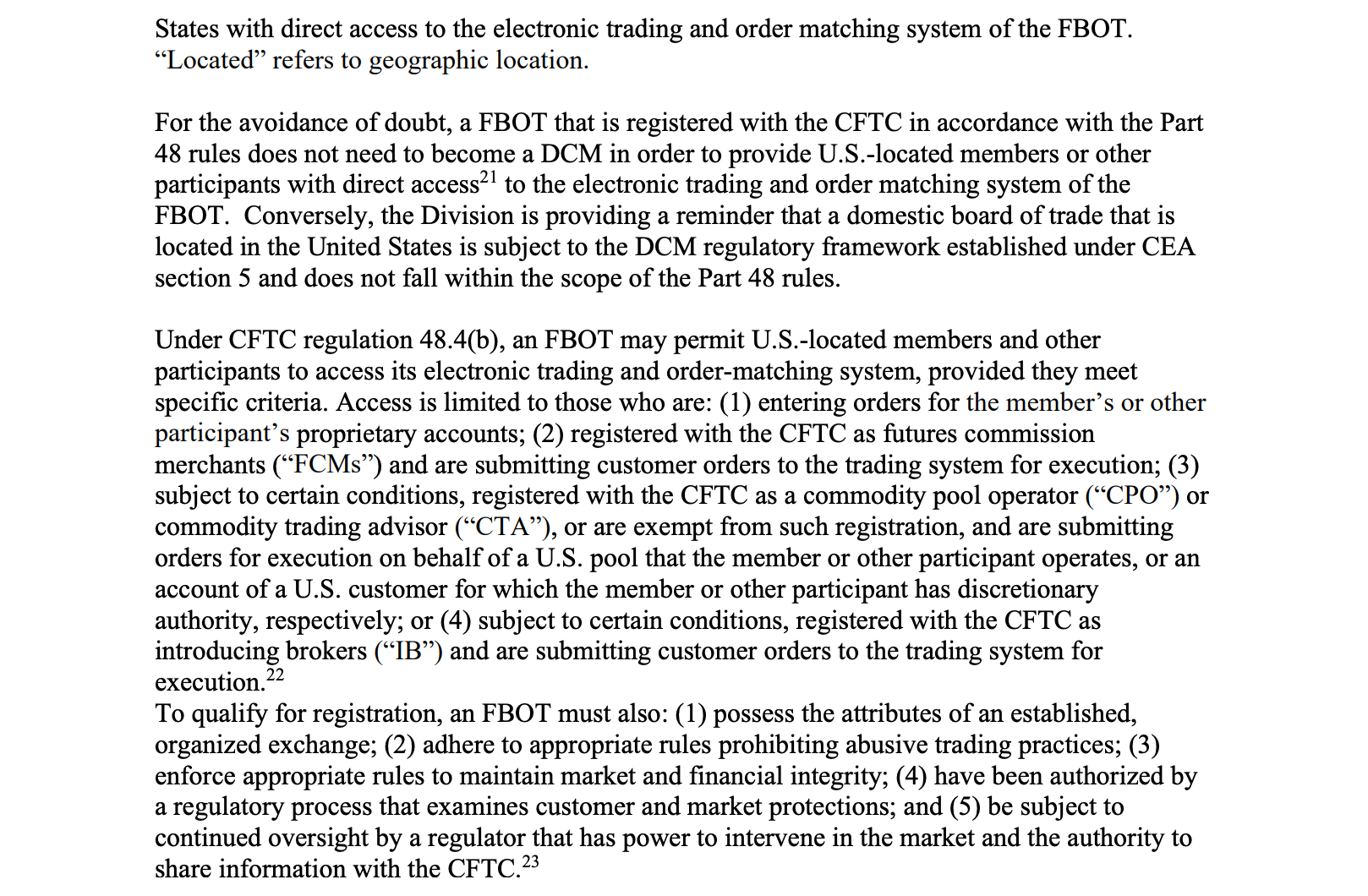
The FBOT Framework: A Regulatory Hurdle Too High?
The Commodity Futures Trading Commission (CFTC) recently issued an advisory regarding the Foreign Board of Trade (FBOT) framework, aiming to provide a pathway for offshore crypto exchanges to serve US residents. However, according to industry expert Eli Cohen, general counsel at Centrifuge, the framework is unlikely to bring these exchanges back to the US market. His assessment highlights significant practical and regulatory challenges that render FBOT registration an unappealing option for most offshore platforms.
Traditional Finance Requirements, Crypto Realities
Cohen emphasizes that the requirements associated with the FBOT framework, designed for traditional financial institutions, are fundamentally incompatible with the operational realities of crypto exchanges. Settlement processes, clearing mechanisms, and other compliance obligations are structured for a legacy financial system and present substantial difficulties for crypto businesses. Meeting these demands would require significant infrastructural and operational overhauls, potentially rendering the effort unsustainable for many.
Who Can Apply? Limited Scope of the FBOT
The CFTC‘s guidelines further restrict the pool of eligible applicants. Only licensed Futures Commission Merchants (FCMs), essentially broker-dealers for futures contracts, and other highly regulated entities qualify for FBOT registration. This effectively limits the framework’s appeal to already compliant, or at least, heavily regulated, entities operating outside the United States. As Cohen notes, “The main problem is that only regulated exchanges outside the United States can apply for the FBOT. So, you need to have an existing regulatory framework in your home country.”

The Lure of Unregulated Jurisdictions
Many crypto exchanges currently operate in jurisdictions with minimal regulatory oversight, such as the Seychelles, to avoid the complexities and costs associated with stringent compliance requirements. The FBOT framework, therefore, offers little incentive for these exchanges to change their operational strategies. Cohen believes that the FBOT framework will not solve the problem of US residents using offshore exchanges.
The Need for Comprehensive Crypto Legislation
Looking ahead, Cohen advocates for comprehensive crypto legislation in Congress as the most effective solution. He proposes codifying clear regulations, providing lasting clarity, and creating a regulatory framework that can withstand changes in political administrations. The current reliance on agency guidance, he argues, offers only temporary fixes and lacks the stability needed to foster long-term growth and innovation in the US crypto market.
The Bigger Picture: CFTC’s ‘Crypto Sprint’
The FBOT advisory comes amidst the CFTC‘s broader initiative, dubbed the “crypto sprint”, aimed at overhauling crypto regulations. This effort aligns with the Trump administration’s ambition to position the US as a global leader in the crypto space. Proposed policy recommendations include joint oversight from the CFTC and the Securities and Exchange Commission (SEC), and exploring initiatives like perpetual financial markets, which would enable 24/7 trading. While the regulatory agencies attempt to collaborate and propose new rules, Cohen’s analysis underscores the complexities and limitations of current regulatory approaches.


